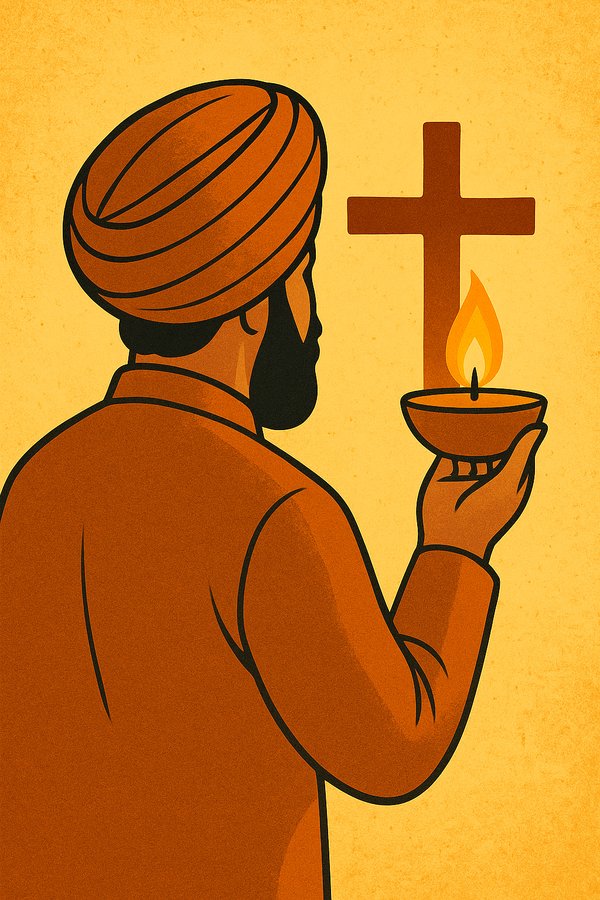LCM Missionary Brother Mann explains why Sikhs celebrate Diwali and how as Christians we can use the theme of freedom to point to the gospel.
As Diwali approaches, the many of the streets of west London begin to sparkle. Shop windows glow with lights, homes are decorated with candles and lanterns, and families prepare for celebration. For many Sikhs, Diwali is a time of joy, tradition, and remembrance. But for me — someone who grew up in a Sikh household and served as a Sikh priest — Diwali now reminds me of something far greater: the freedom found in Jesus Christ.
Who Are Sikhs in the UK?
There are around 520,000 Sikhs in England, with large communities in London, Birmingham, and Leicester. In London alone, tens of thousands of Sikhs live and worship — many in Southall, Ilford, and Hounslow.
Now, before I go into the details of why Sikhs celebrate Diwali, let me first share a few basics about Sikh beliefs — especially for those who may not be familiar with the faith.
Unlike Hinduism, Sikhism is monotheistic religion that began in the 15th century in Punjab, India. It was founded by Guru Nanak and developed through the teachings of ten human Gurus, ending with Guru Gobind Singh. Sikhs believe in one God who is loving, eternal, and without form. The teachings of the Gurus are recorded in the Guru Granth Sahib, which is considered the final and eternal Guru.
Sikh values include devotion to God, equality of all people, honest living, and service to others. You’ll often see Sikhs wearing turbans, which are a sign of dignity and identity, and many are actively involved in community service and charitable work.












